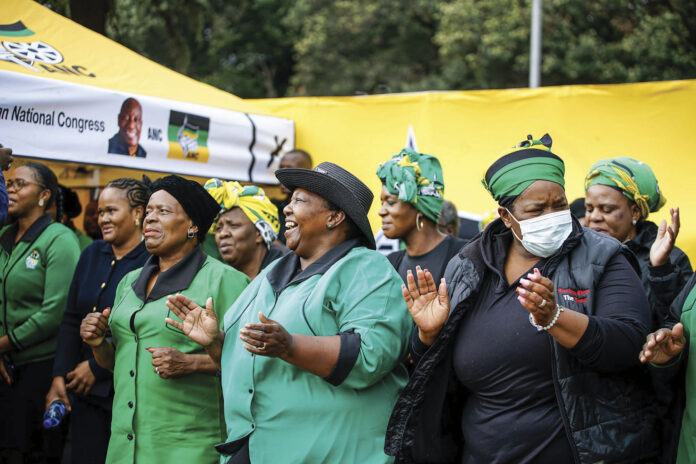The ANC is looking to take a harsher stance on members implicated in alleged crimes against women and children.
The party’s Integrity Commission (IC) ‘s terms of reference presented at the national executive committee (NEC) on Friday seek to take stringent action against all who are involved in incidents of gender-based violence or any criminal offence listed in the criminal law, according to sources who attended the meeting.
In recent history, the party has been unsuccessful in adequately dealing with offences of this nature. The new dispensation will severely punish several NEC members for alleged transgressions—but also introduce a new appeals structure to review the findings of the integrity committee.
A member of the NEC said, “It is good that the NEC is finally highlighting this. Before, the NEC did not know how to deal with these issues, so people just got away with these issues when we say we take GBV and crimes against children seriously.”
A subordinate at Luthuli House accused the former ANC national spokesperson Pule Mabe of sexual harassment in 2019. The ANC eventually settled with his accuser before the CCMA, rewarding her with a golden handshake and R50 000 in back pay.
Around the same time, another former ANC national spokesperson, Zizi Kodwa, was also fingered for the same transgression, but his accuser later withdrew the complaint.
Two years ago, finance minister Enoch Godongwana also got away with allegations of sexually assaulting a masseuse at Kruger National Park during a vacation with his wife.
The ANC is holding its three-day NEC meeting this weekend at the Birchwood Hotel, which is centred around conversations about dealing with ill-discipline and rouge behaviour.
ANC NEC members have rubber-stamped a move to introduce an appeals body relating to integrity issues.
Members of the ANC’s highest decision-making body are upset that media reports, which place the IC as the platform of first and last resort, are dictating their fate, and they are demanding the immediate assembly of the appeals structure.
Punitive powers granted to the IC without a right of recourse infuriated the NEC members, who claimed this violated the principle of natural justice because the structure’s members occasionally act with preconceived notions about those who appear before them.
The NEC has also ratified the decision to establish integrity committees at the provincial level to tighten processes relating to unethical members. The goal is to decentralise the work of the IC.
The party’s integrity committee processed dozens of cases dating back to 2021, which the NEC reflected on. The meeting also focused on the offences that would qualify members and leaders to appear before IC and be subject to the step-aside rule.
The NEC members argued the party lacked clear guidelines on what behaviour qualified as misconduct serious enough to warrant an appearance before the IC and the application of the step-aside rule. The leaders argued that minor issues like traffic fines and men joking with their female colleagues could force them out of their comfortable positions.
“At the rate things are going, if we are not careful, all of us might be placed on a step-aside rule because there is no consistency and clarity. Soon enough a traffic fine will get comrades subjected to the Integrity Commission and step aside, and I do not think that is what renewal intends – to criminalise all human behaviour,” a source told Sunday World.
Causalities of the step-aside rule include expelled former ANC secretary general Ace Magashule, Mabe and Kodwa. They all stepped aside due to criminal charges related to alleged corruption.
The IC has previously been criticised for being toothless and used for factional purposes to isolate opponents of the dominant faction within the ANC power dynamics.




